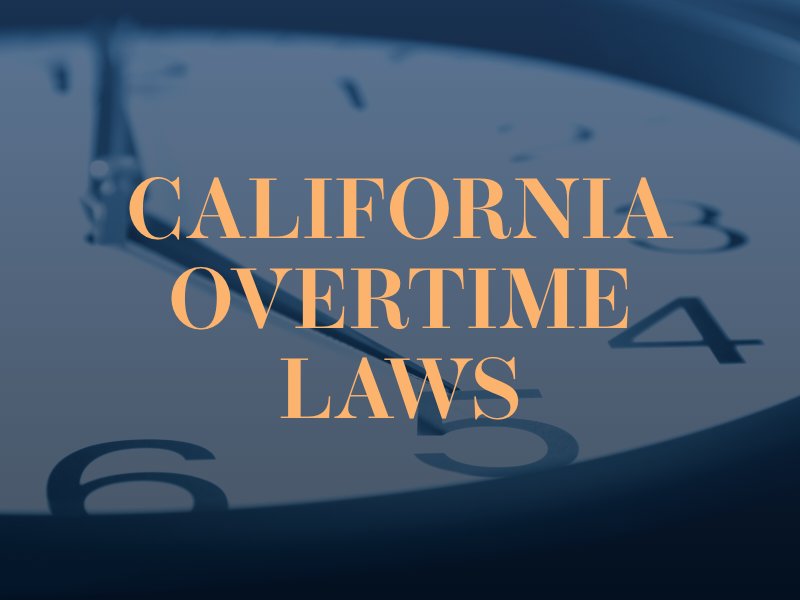Few things generate more confusion than overtime pay in California. Much of this confusion revolves around the purposeful obfuscation of these laws on the part of employers, particularly when it comes to trying to get out of paying workers. Here, we want to discuss what California law says about paying overtime in this state.

What Is Considered Overtime in California?
The right to overtime pay is absolutely crucial to ensuring fair treatment of workers in California. In this state, all non-exempt employees are eligible for overtime, and employers are not allowed to avoid overtime requirements by pressuring or requiring workers to operate “off the clock.”
In general, employers have to pay all non-exempt employees “time and a half” pay for any work in excess of:
- Eight hours in a single workday, or
- 40 hours in a single workweek
Additionally, employees in California will be entitled to “time and a half” pay for the first eight hours they work on the seventh consecutive day during the workweek.
Overtime laws in California also require employers to pay workers “double time” pay for any work in excess of 12 hours in a single workday or any work in access of eight hours on the seventh day of consecutive work during the week.
Who Is Considered Non-Exempt?
When determining whether or not a worker is exempt from overtime pay, California follows the regulations set forth in the federal Fair Labor Standards Act (FLSA). In general, employers will not have to pay overtime for the following individuals:
- Executive, administrative, or professional individuals paid on a salary basis
- Independent contractors
- Volunteers
- Outside salespeople
- Certain types of computer specialists who earn at least $27.63 an hour
- Employees of recreational or seasonal businesses
- Certain small newspaper employees
- Newspaper delivery people
- Those involved in fishing operations
- Seaman
- Various types of switchboard operators
- Employees of small farms
- Criminal investigators
- …and others
If you are confused about whether or not you may be exempt from receiving overtime pay, we strongly encourage you to reach out to a California wage and hour attorney. An attorney will be able to examine your particular situation and help determine whether or not you should be receiving overtime.
As we mentioned above, salaried employees are generally not eligible for overtime. The state considers a person salaried if they earn at least $455 per week and they receive the same salary every week, regardless of how many hours they work. However, there are some circumstances in which an employer will have to pay overtime to a person who earns more than $455 per week. In addition to this minimum salary level, a person will only be exempt from overtime if their work requires an advanced degree, is supervisory in nature, or requires them to make relatively high-level business decisions.
Work With an Attorney for Your Overtime Case
If you or somebody you care about has not received your rightful overtime pay, you need to speak to an Orange County employment attorney as soon as possible. A lawyer can use their resources and experience to fully investigate your situation and help determine the best steps moving forward for your case.

